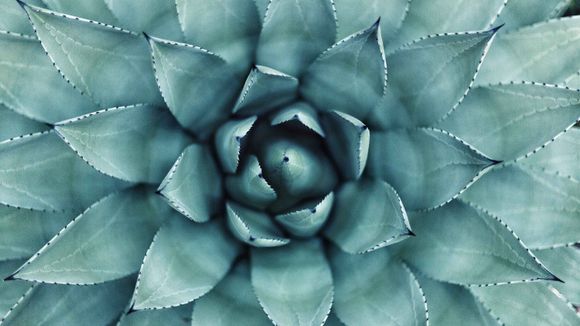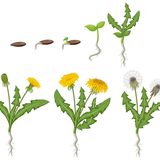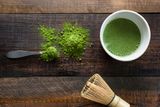5 homemade recipes for burns and skin irritations
1. Aloe Vera Gel (Aloe Barbadensis)
Aloe Vera is a succulent plant native to North Africa and the Arabian Peninsula. It has been used for centuries in traditional Indian medicine for its soothing, cooling, and anti-inflammatory properties. Here's how to prepare and use Aloe Vera gel for burns and skin irritations:
- Cut a fresh Aloe Vera leaf and remove the skin.
- Scoop out the gel and store it in a clean container.
- Apply the gel directly to the affected area and gently massage it into the skin.
- Let it sit for 20-30 minutes before rinsing with cold water.
Note: Aloe Vera gel is also known to provide some natural sunscreen protection due to its UV-absorbing compounds. However, it should not replace a dedicated sunscreen product.
2. Turmeric paste (Curcuma Longa)
Turmeric is a powerful anti-inflammatory and antiseptic agent. It can reduce pain, swelling, and redness associated with burns and skin irritations.
- Mix 1 teaspoon of turmeric powder with enough water to form a thick paste.
- Apply the paste to the affected area and let it dry for 15-20 minutes.
- Rinse with cold water and pat dry with a clean towel.
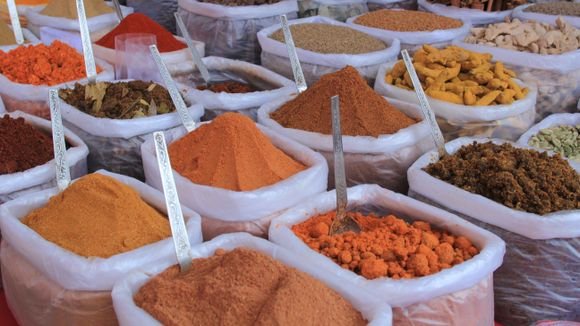
Photo by Nikoli Afina on Unsplash
3. Neem leaves (Azadirachta indica)
Neem leaves have been used in Ayurvedic medicine for centuries due to their antibacterial, antifungal, and anti-inflammatory properties.
4. Sandalwood (Santalum Album) powder
Sandalwood is known for its cooling and soothing effects on the skin, making it an excellent remedy for burns and irritations.
- Mix 1 tablespoon of sandalwood powder with rose water or cold milk to form a thick paste.
- Apply the paste to the affected area and let it dry for 15-20 minutes.
- Rinse with cold water and pat dry with a clean towel.
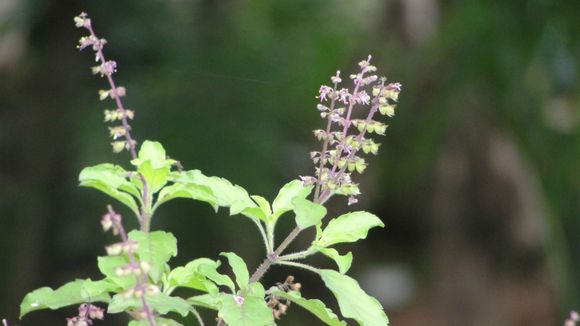
Photo by Nikoli Afina on Unsplash
5. Holy basil leaves (Ocimum Tenuiflorum)
Holy Basil, also known as Tulsi, is a versatile herb with anti-inflammatory and antibacterial properties.
- Crush a handful of fresh Holy Basil leaves to form a paste.
- Apply the paste directly to the burn or skin irritation.
- Leave it on for 15-20 minutes before rinsing with cold water.
Anti-Cancer Properties
While the primary focus of this blog post is on burns and skin irritations, it is worth noting that some of the plants mentioned have demonstrated potential anti-cancer properties. For example, turmeric (Curcuma Longa) contains an active compound called curcumin, which has been extensively studied for its potential anti-inflammatory, antioxidant, and anti-cancer effects. Similarly, Neem (Azadirachta Indica) has shown potential anti-cancer activity due to its various bioactive compounds. More research is needed to understand the full extent of these plants' anti-cancer properties and their possible applications in cancer prevention and treatment.
Questions and Answers
Q: Can I use these remedies on children?
A: Yes, these remedies are generally safe for children. However, always perform a patch test on a small area of the skin before applying any remedy to ensure no allergic reactions occur.
Q: How often can I apply these remedies?
A: You can apply these remedies 1-2 times daily, depending on the severity of the burn or irritation. If symptoms persist or worsen, consult a healthcare professional.
Q: Can I mix and match these remedies?
A: Yes, you can combine some of these remedies to enhance their effectiveness. For instance, you could mix turmeric paste with Aloe Vera gel or add sandalwood powder to Neem paste. However, be cautious about combining too many ingredients, as it may cause irritation or an allergic reaction.
Q: Are these remedies effective for chemical burns?
A: These remedies may provide some relief for minor chemical burns, but it is essential to seek immediate medical attention for any chemical burns, as they can be severe and potentially life-threatening.
Q: Can I use these remedies for all types of skin irritations?
A: These remedies can be helpful for various skin irritations, including sunburns, minor cuts, insect bites, and rashes. However, if you have a severe or persistent skin condition, it is best to consult a healthcare professional for proper diagnosis and treatment.
